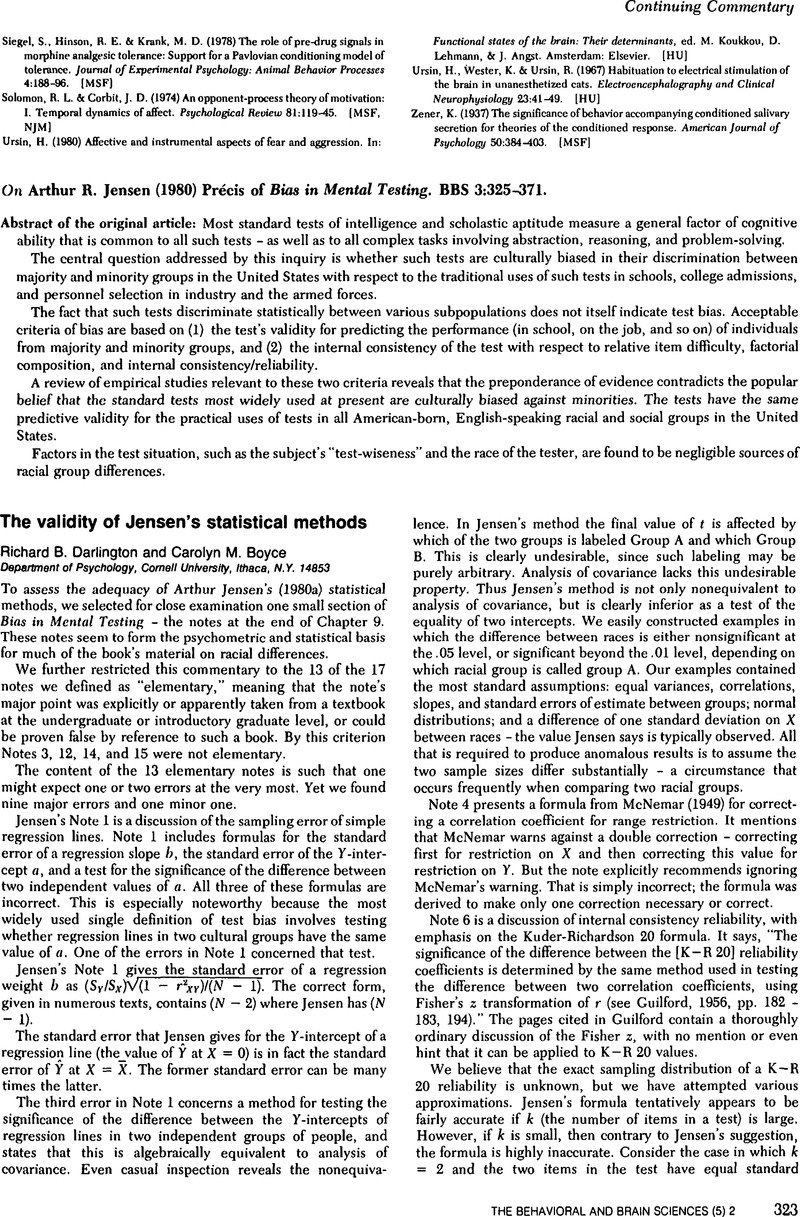Crossref Citations
This article has been cited by the following publications. This list is generated based on data provided by Crossref.
Hirsch, Jerry
Allen, Gordon
Levine, Louis
and
Thiessen, Del
1983.
Book reviews.
Biodemography and Social Biology,
Vol. 30,
Issue. 1,
p.
116.
Fan, Xitao
Willson, Victor L.
and
Kapes, Jerome T.
1996.
Ethnic Group Representation in Test Construction Samples and Test Bias: The Standardization Fallacy Revisited.
Educational and Psychological Measurement,
Vol. 56,
Issue. 3,
p.
365.


